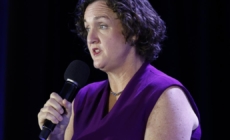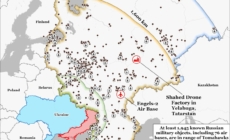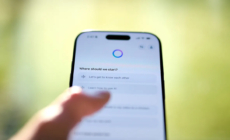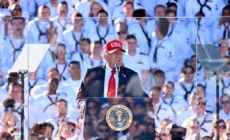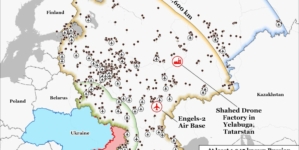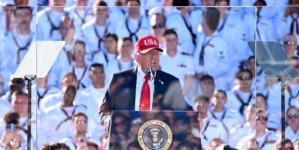-
Vojvodina Rider Claims Victory at 18th National Gallop - 5 mins ago
-
Cat Sees Dog Walking Past Store Daily, Response Goes Viral: ‘True Nemesis’ - 14 mins ago
-
Hungary Hails Georgian Municipal Election Results Amid Protests - 37 mins ago
-
NFL Top-10 Rankings: Lions Grab Top Spot; Eagles, Bills Drop; Bucs, Colts Climb - 38 mins ago
-
Katie Porter gains endorsement of powerful group for Calif. governor - 42 mins ago
-
Map shows where Russian targets could be destroyed with Tomahawk missiles - 52 mins ago
-
King Charles’ former butler reveals surprising royal protocol rules - 55 mins ago
-
Meta’s leaked AI documents expose internal child safety training rules - about 1 hour ago
-
PM Sounds Alarm on Anti-Christian Forces, Celebrates Faith at Cathedral Reopening - about 1 hour ago
-
Tom Brady’s LFG Player of the Game: Commanders RB Jacory Croskey-Merritt 🏆 Week 5 DIGITAL EXCLUSIVE - about 1 hour ago
H-1B Visa Warning Issued in California
The University of Southern California (USC) has issued a warning to faculty and staff holding H‑1B work visas, advising them to postpone international travel until further guidance is available amid the White House immigration crackdown, according to The Daily Trojan, a student newspaper.
“Out of an abundance of caution, all faculty and staff in H-1B status currently in the U.S. should put international travel plans on hold until they receive further guidance,” the statement obtained by the outlet reads. “If possible, any faculty and staff in H-1B status who are currently outside the U.S. are strongly recommended to return to the U.S. before the proclamation takes effect.”
Why It Matters
The warning follows a presidential proclamation signed by President Donald Trump on September 19, which requires employers to pay a $100,000 fee for each new H‑1B petition filed after September 21. The rule is set to remain in effect for 12 months, unless extended. Existing H‑1B holders, as well as renewals and amendments, are exempt from the fee, and certain additional exemptions are available.
What To Know
The White House says the policy aims to curb misuse of the visa program and safeguard U.S. workers from potential job displacement.
The announcement was followed by a proposal from the Department of Homeland Security to revise the H-1B selection process. Under the plan, petitions offering higher wages or tied to “higher-skilled” positions would be prioritized if applications surpass the annual cap of 85,000 new visas.
Supporters of a wage-based system argue it addresses long-standing concerns that some companies use the H-1B program to hire foreign workers at lower pay than their U.S. counterparts, particularly in STEM—science, technology, engineering, and mathematics—fields.
USC obtained approval for 108 H‑1B visas for the 2025 fiscal year. Faculty and students at the university have expressed mixed reactions to the new policy.
Aisling Kelliher, an associate professor of cinematic arts, initially came to the U.S. on an H‑1B visa to conduct doctoral research at the Massachusetts Institute of Technology Media Lab and later renewed her H‑1B status before obtaining a green card six years later, according to The Daily Trojan.
“One of the primary reasons why people come here as well is because of the international reputation of the American education system,” Kelliher said. “It’s a huge opportunity, both to come here as an immigrant and to receive an education, and then also to be able to continue as a researcher and as a teacher within the system that you’ve learned from.”
On Friday, a group comprising unions, employers, and religious organizations filed a federal lawsuit aiming to prevent the implementation of a $100,000 fee on new H‑1B visas for highly skilled foreign workers.
The case, filed in San Francisco, marks the first legal challenge to the presidential proclamation issued two weeks ago that introduced the fee as part of broader efforts to modify U.S. immigration policy.
What People Are Saying
White House spokesperson Abigail Jackson previously told Newsweek: “President Trump promised to put American workers first, and his common sense action on H1-B visas does just that by discouraging companies from spamming the system and driving down American wages, while providing certainty to employers who need to bring the best talent from overseas.”
James Harold Webb, an entrepreneur, told Newsweek: “Trump’s new H-1B visa fee will have a significant impact on small businesses and startups. From an entrepreneurial perspective, this means higher employment costs, bigger startup budgets, and an increased need for capital; challenges most small businesses are simply not prepared for.
“What’s most concerning is that this rule came out of nowhere. For entrepreneurs, surprises like this force constant adjustments just to stay afloat. Larger corporations can absorb these shocks, but for small businesses, unexpected costs and sudden policy shifts can be the difference between growth and survival.”
Christi Jackson, a partner at Laura Devine Immigration, told Newsweek: “The challenge with legislative and enforcement measures, especially the proposed $100,000 fee imposed on new H-1B applications, is that both large and small tech firms depend heavily on H-1B talent. These workers aren’t displacing American jobs; they’re filling critical gaps that would otherwise remain vacant. They’re essential to the health of the U.S. economy, and it won’t come as a surprise to many if some of the most prominent tech companies begin to feel the strain.”
What Happens Next
The Trump administration could implement additional changes to the H‑1B visa program in the coming months, leaving universities and employers monitoring developments closely.
Source link




